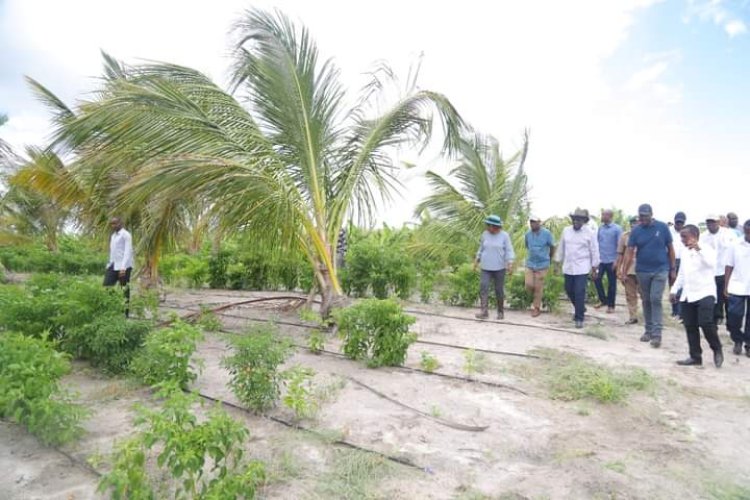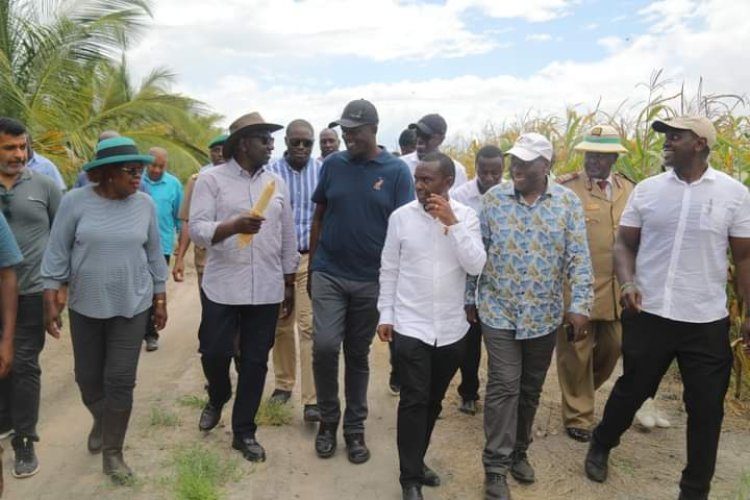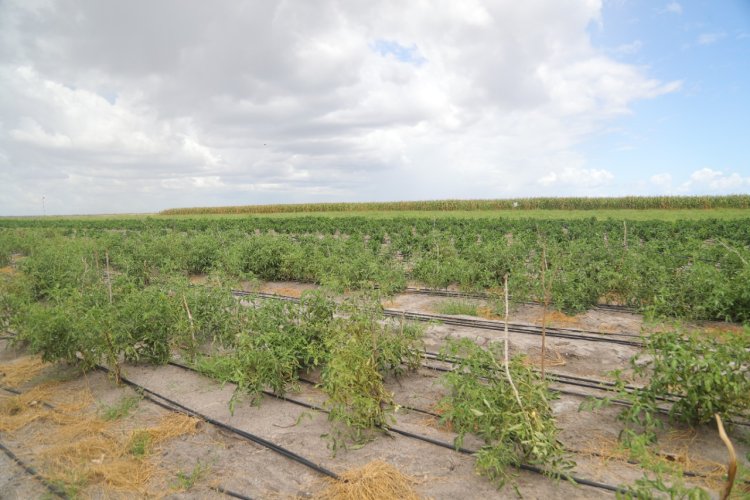Ruto: How Uhuru's Officials Made Him Revoke Galana Kulalu Settlement Scheme
Ruto accused the individuals whom he did not name for allegedly subdividing the land amongst themselves.

President William Ruto has now claimed that officials in former President Uhuru Kenyatta's government had intentionally sabotaged the Galana Kulalu Irrigation scheme for settlement purposes.
Speaking during a joint media interview with journalists from Kenyan mainstream media houses at State House in Nairobi on Wednesday, January 4, Ruto accused the individuals whom he did not name for allegedly subdividing the land amongst themselves.
Just to prove that the scheme was orchestrated for the purpose of settling 10,000 people instead of focusing on growing crops, Ruto tasked the journalists to check with the Ministry of Lands for records on the same.
He reiterated his decision to revoke plans for the settlement scheme on the basis that the irrigation scheme has the capability of feeding up to 4 million Kenyans.

President William Ruto with other governors touring the Galana-Kulalu project on January 3, 2023. /WILLIAM RUTO
“Just to show you that Galana Kulalu was sabotaged, go to the Ministry of Lands, the fellows who sabotaged it had actually sub-divided it into little pieces of land. I have cancelled the parcelling of that land, I have stopped it and it will not happen because subdividing Galana is actually going to send people there who are going to require food relief to even live there,” he said.
“Galana can feed 3 or 4 million Kenyans, why do you want to go and settle 10,000 people there? How does that compare? Galana did not fail, it was made to fail.”
The Kenya Kwanza government was planning to revamp the project through a public-private partnership (PPP) with the National Irrigation Authority (NIA).
Under the new plan, the initial 10,000 acres of the project will be developed for crop production starting in February, with another 10,000 acres to be prepared for production within the next six months.
The government will also begin construction on a dam in April in order to bring an additional 350,000 acres under production. A model for PPP food production on these 350,000 acres is expected to be developed within the next six months.
"After an extensive tour with National and County Government leaders of Galana/Kulalu National Food Security Project today, I direct as follows: (I) The planned subdivision into settlement parcels is revoked/cancelled; (II) Private Sector and GOK (the National Irrigation Authority) under a Public–Private Partnership (PPP) to work on the ready 10,000 acres to produce food starting with maize in February.
"The next 10,000 acres be prepared for production in 6 months under PPP: (I) GOK to construct a dam beginning April to bring another 350,000 acres under food production; (II) GOK to work out a model for PPP food production in the 350,000 acres to be ready in 6 months. All actors to execute timeously," Ruto stated in part.
Governors Issa Timamy (Lamu), Gideon Mung'aro (Kilifi), Abdullswamad Sherrif Nassir (Mombasa), Johnson Sakaja (Nairobi) and Cabinet Secretary for Water, Sanitation and Irrigation Alice Wahome were present when President Ruto toured the facility.
The move to revamp the project was met with comments from some netizens who believed that the main drivers in terms of food security lie with the farmers.
The project, which was initiated in 2014 by the Kenyan and Israeli governments, was intended to cultivate around one million acres of the Galana Kulalu complex in order to inject 41 per cent more maize, the country’s staple food, into the market.
However, the project faced delays and controversy surrounding the misappropriation of funds, leading to its termination in 2019. The Israeli government had expressed disappointment in the failure of the project, which marked the first time an Israeli-funded project had failed in the country’s 70-year history.

Galana Kulalu irrigation scheme. /WILLIAM RUTO

 admin
admin 




